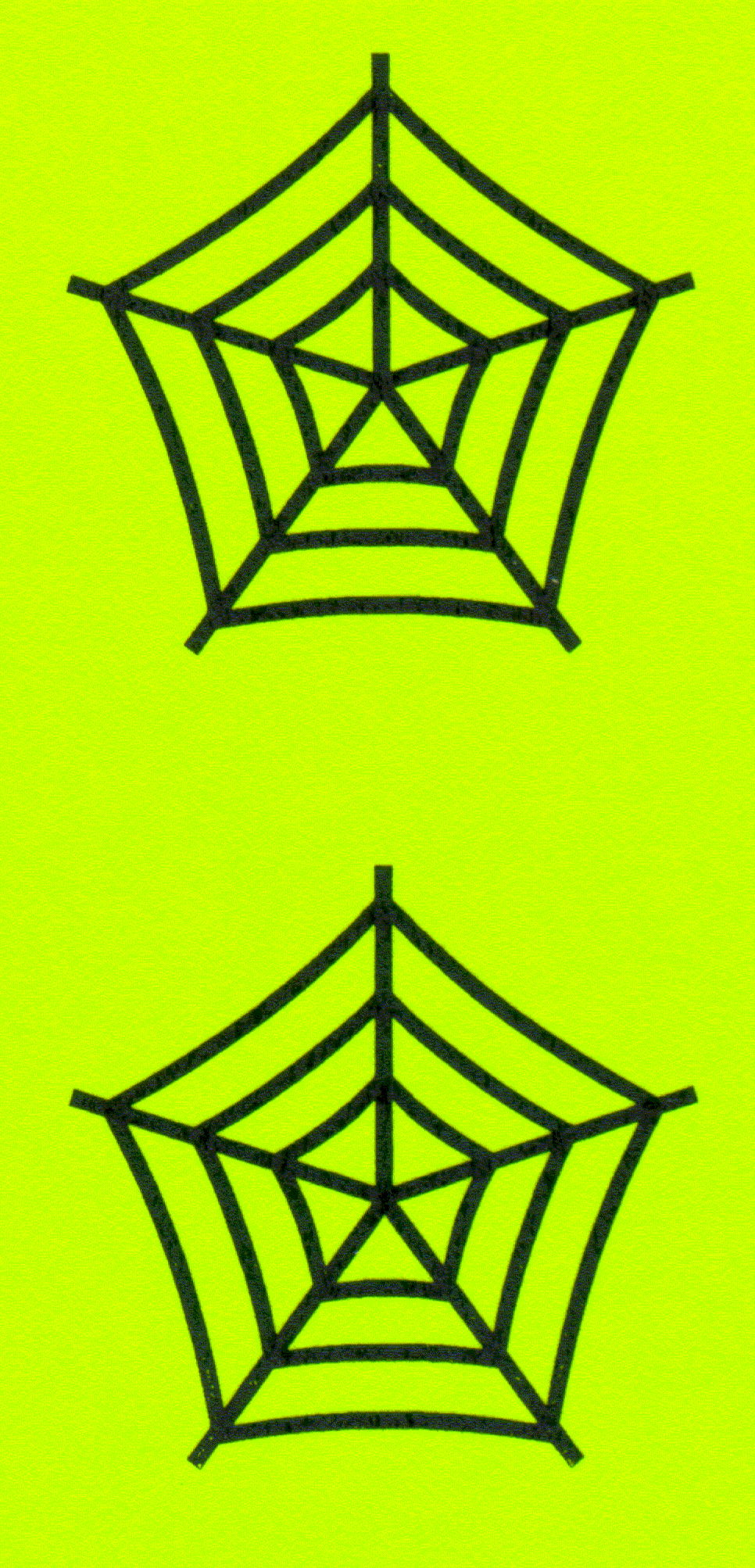



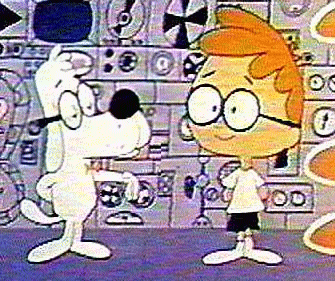
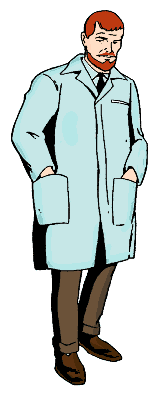
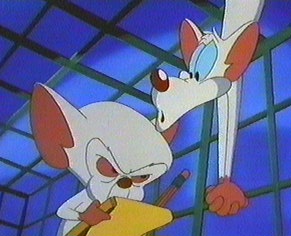 My three heroes, Cartoon Champions for the Intelligentsia:
My three heroes, Cartoon Champions for the Intelligentsia:
The Brain (with Pinky),
the original and only Dr. Benton Quest, and Mr. Peabody (with Sherman)
"Those whom the gods love grow
young"
--Oscar Wilde
Gumby: boy adventurer, child hero, scientific
prodigy with smalltown modesty. Gumby: silicoaluminate shapeshifter,
literature elemental spirit, Zen sage-clown. Who can forget the little
green boy of clay whose adventures alternated between simple children's stories and
surreal fables? For devotees of claymation and puppetoons and other stop-motion
animated magic, there is the
Gumby webpage and a cool
website devoted to Pokey.
Read here for the truth about
Gumby's Eastern
Mystical Influence for an even more surreal experience. For Gumby's welcome
modern successor, take a look at The Wallace
and Gromit Appreciation Page - "crackin' toast, Gromit!".
They are two classic teams of two classic sets of archetypes.
The first is the Quest team : brilliant scientist and exuberant adventurer Dr.
Benton Quest, resourceful secret agent and man of action Race Bannon, dignified
yet playful mystic Hadji, and the energetic boy slowly turning into an ethically forthright
and good-humored man Jonny Quest. The Quest "family" is something
that no longer appears on television : a psychologically healthy, functional
group of individuals enjoying life and the adventure of discovery together. Dr.
Benton Quest never fell into the stereotypes of the cold intellectual and the emotionally distant
father so popular today. Race Bannon was an individual of action, but he
was never arrogantly brutal with his enemies; he had a strong enough sense of self that
he remained impressive without stooping to 'attitude'. Hadji may
have had 'mysterious abilities', but they came into play only rarely
because he had so much more to his character. And Jonny, Jonny was an
idealistic, ravenously-curious youngster who avoided the stereotypical faux cynical
pose which has become such a cliché today. Unfortunately, the weak
heir to this series, the (Un)Real Adventures, has fallen back on all these
hackneyed but popular stereotypes in its reinterpretation of the Quest group.
Sigh! Sometimes updating is downsliding. Information on the
genuine Jonny Quest and company can be found on
The Classic Jonny Quest Pages;
an excellent analysis concerning why the original version of this classic series worked so well appears
on Boy Bond, although the
website's author is a bit too forgiving of the defiling of the characters which occurs
in the (Un)real adventures.
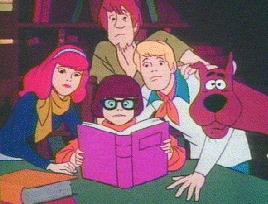
The second classic team should be readily recognized as well :
placid leader Fred, lovely socialite Daphne, the pragmatic genius Velma,
man-of-the-flesh Shaggy, and the heroic coward Scooby Doo! *Josie and the
Pussycats* deserves honorable mention as a group which came close to being a third classic team,
a position the series earned because it did not imitate *Scooby Doo* in its characterizations,
but dear Josie and company never quite equalled the sheer versatility of *Scooby Doo*. Other
cartoon series have attempted to imitate this great team : *The Funky Phantom* had a certain
charm perhaps, but does anyone really remember *Goober and the Ghostchasers* or *Speed Buggy*
or that weird hybrid of *Scooby Doo* and *Josie and the Pussycats*, the Curly Howard/Rodney
Dangerfield wanna-be*Jabberjaws*? For a playful look at the heroic cowardly great dane, try
Scooby-Doo's DMW Home Page. Of
course, just as *Jonny Quest* was badly updated with pseudo-real adventures,
Scooby Doo lost direction in such silliness as *The Thirteen Ghosts of Scooby Doo*. Ever
wonder what went wrong with Scooby Doo? Well, here are two answers :
Scooby Doo, What Happened to You?
and the unvarnished truth behind the
Darkside of Scooby Doo.
For fans of other television cartoons as well as *Scooby Doo* and
*The Adventures of Jonny Quest*, both the brilliant cartoons and the quirky ones which
charmed us despite their overly-economized production values, I heartily recommend
Ron Kurer's Toon Tracker Home Page as a resource
for finding them. Simply skimming his pages is an exercise in nostalgic serendipity.
Many fans remember *H. R. Pufenstuf* as a wonderful bit of
Krofft puppetry, but an overlooked example of that inspired Krofft weirdness was the
live-action puppet series *Lidsville*. The series followed the adventures of a human
boy named Mark, played by Butch Patrick after his tenure as Eddy Munster in the odd world
of *The Munsters*; in an Alice-in-Wonderland-like moment, Mark falls down
a hole (in this case a magical tunnel through a stage magician's magic hat) into a surreal
world of living hats. Just as Jimmy tried to protect his friends on Living Island
from Witchipoo, who never tired of chasing after Freddy the Flute, Mark tried to
protect his friends in Lidsville from the evil magician Hoodoo, who flew around in a
giant collapsed top hat and never tired of chasing after Weenie the Genie, the clumsy
djinn liberated by Mark. The various sentient head apparel were about half Mark's
height and had personalities dominated by a single personality trait, so I often thought of
them as sort of chapeau-golems. For a glimpse of this delightful bit of Krofft
weirdness, visit Chico Lusby's
Lidsville site and David Holifield's
Lidsville Episode Guide. A similarly bizarre new television force, one which
inspires a similar surreality, is the Tele Tubbies; say Eh ho to the Tele
Tubbies at Teletubbies on PBS and at
teletubby2000 .
My favorite supernatural comedy has always been the television series
*Bewitched*. Like all brilliant fantastical programs (both supernatural and SF),
*Bewitched* used the freedom its alleged unreality gave it to engage in social
commentary during a time when networks were vehemently anti-controversy. *Bewitched*
satirized the incessent consumerism and conformity of the 1950s and early 1960s through the character
of Darrin, the ad executive who only wanted to pursue a simplistic vision of the American
Dream, with an ordinary wife, ordinary children, an ordinary suburban home,
and an ordinary life identical to the lives of everyone else he knew. (Over the years,
Darrin grew to accept (though not embrace) the wild idiosyncracies of Samantha's colorful,
Auntie Mame-like family.) Members of socially oppressed groups in the United
States have often identified with the culture conflict in *Bewitched*. African-American
school children have reported identifying with the mixed marriage difficulties of Samantha and
Darrin Stevens, while lesbians and gay men have spoken about identifying with Samantha's
struggles as Darrin tries to keep her 'in the closet' and encourage her to
deny her true self. Samantha's magic is also sound from a folklore
perspective. If one pays attention to the early episodes, it becomes pretty
obvious that someone behind this series knew his or her Celtic faerie lore, for the various
witches in the series behave not like the Medieval conception of witches at all (nor like modern
practitioners of Wicca or pagan magic) but instead like both the Sidhe (with a Celtic zeal for life
as well as the Sidhe's notorious arrogance) and the 'Little People' who descended [or
devolved] from the faerie folk into modern times. I recommend turning to the Encyclopedia
Mythica in Myths, Legends, Folklore for more information about the Sidhe and
the faerie folk; then turn to The Bewitched and Elizabeth Montgomery Web Site for more information on *Bewitched*!
Another well-done supernatural comedy was *The Munsters* - so good in fact
that it is actually possible to forgive the series for its unstomachable reincarnation in puerile sitcom
form a couple of years ago!
*The Munsters* managed to capture the spirit of the times; they were the new immigrants to the United States who
immediately embraced U.S.American culture yet never forgot the culture they came from,
and in embracing the American Dream they turned out to embody everything that is innocent and loyal about
about U.S.Americans to a far better degree than did their neighbors born to this
country. True, the Munster family's 'Old Country' ways
seemed odd to other people, but notice that in each episode it was the ethnocentric xenophobes not
the Munsters who usually lost in the end. *The Munsters* combined conventional 1950s
family themes with the theme of the misunderstood outsider - and who can't identify with that at
some time or another! For more information on this unusual family, take a look at the websites
accessible through
The Munsters WebRing.
Like *The Munsters*, the weird-'n'-wonderful Addams family
invoked the theme of the misunderstood outsider, but these two supernatural comedies cease to
resemble each other from that point forward. The Addamses never worried about fitting in or
not fitting in; unlike the Munsters family, the Addams family were blissfully ignorant of
the societal pressures to conform. One of the coolest things about the Addams family is
that these bizarre preternatural beings lived up to the Christian ideals of charity, tolerance,
loyalty, and assumption of good will towards all, far better than any of the more
conventional families portrayed on television at that time, or, I dare say, now.
Good websites for *The Addams Family* include
The Addams Family, and
Gillian Kinney's
comparison of the two Addams Family films.

Finally, three old childhood favorites of mine:
a website celebrating that heroic super-animal group from the 1960s,
The Herculoids,
a website dedicated to that far future fantasy barbarian,
Thundarr the Barbarian,
and the delightful subaquatic soap opera adventure of
Gerry Anderson's Stingray. Finally,
what glimpse back at childhood could be complete with some Schoolhouse
Rock?
Click  to return to The Ev-Web index.
to return to The Ev-Web index.
 for comments, considerations,
for comments, considerations,
commendations and confusions,
or to just  me.
me.
visitors have spun their way to my web.